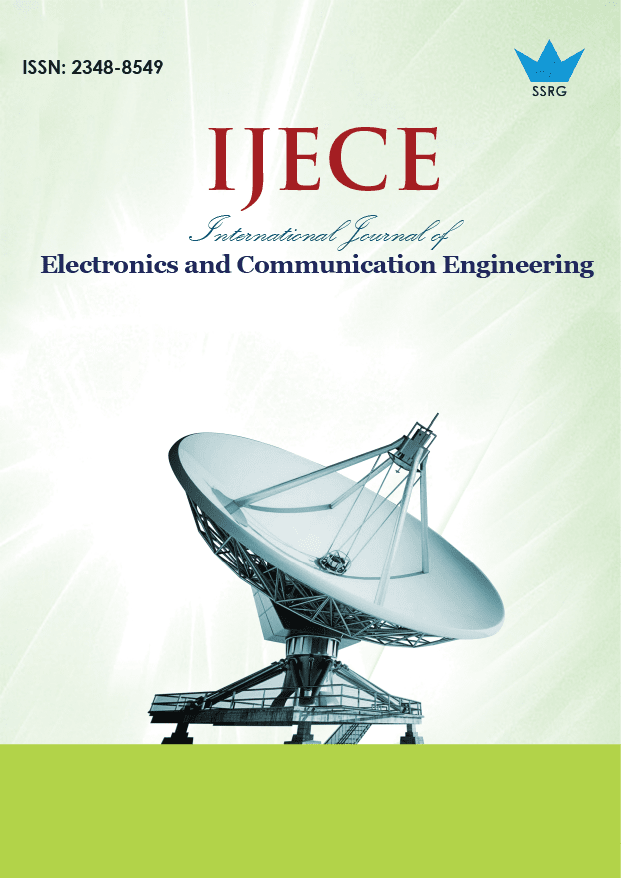Adaptive Equalization of binary encoded signals using LMS Algorithm

| International Journal of Electronics and Communication Engineering |
| © 2014 by SSRG - IJECE Journal |
| Volume 1 Issue 7 |
| Year of Publication : 2014 |
| Authors : Dr.K.Nagi Reddy |
How to Cite?
Dr.K.Nagi Reddy, "Adaptive Equalization of binary encoded signals using LMS Algorithm," SSRG International Journal of Electronics and Communication Engineering, vol. 1, no. 7, pp. 1-7, 2014. Crossref, https://doi.org/10.14445/23488549/IJECE-V1I7P101
Abstract:
The recent digital transmission systems impose the application of channel equalizers with short training time. Equalization techniques compensate for the time dispersion introduced by communication channels. Adaptive equalization is the technique used to reliably transmit data through a communication channel. Ideally, if the channel is ideal, we can demodulate the signal perfectly at the output without causing any error. However, in practice, all the channels are non-ideal and noisy in nature. So, to recover the original signal after demodulation, equalization filter is used, which will minimize the error between original transmitted signal and demodulated signal passed through equalization filter. Given a channel of unknown impulse response, the purpose of an adaptive equalizer is to operate on the channel output such that the cascade connection of the channel and the equalizer provides an approximation to an ideal transmission medium. A replica of transmitted sequence is made available at the receiver in proper synchronism with the transmitter, thereby making it possible for adjustments to be made to the equalizer coefficients in accordance with the LMS algorithm employed in the equalizer design. In this paper, an overview of the current state of the art in adaptive equalization technique has been presented for the different binary encoded sequences like Unipolar, polar and bipolar with and without return to zero encoding.
Keywords:
LMS Algorithm, Adaptive filter, Channel equalization
References:
[1] Symon Haykin, Communication system John wiley & sons 3rd edition,1996.
[2] Garima Malik, Amandeep Singh Sappal, Adaptive Equalization Algorithms:An Overview, International Journal of Advanced Computer Science and Applications, Vol. 2, No.3, March 2011
[3] B.P.Lathi, Modern Digital and analog Communications system.
[4] Zhou Jiang, Zhi Liu, Rong-Hua Jin and Xiao-Yang Zen (2006) Design of Dual-mode Equalizer for QAM Demodulator in FPGA,8th International Conference on Solid-State and Integrated Circuit Technology
[5] Ms.Manpreet kaur, Ms. Cherry, Design of an Adaptive Equalizer Using LMS Algorithm, Journal of Electronics and Communication Engineering, Volume 9, Issue 1, Ver. I (Jan. 2014), PP 25-29
[6] B. Widrow and S.D. Sterns, Adaptive Signal Processing, Prentice Hall, New
York, 1985
[7] Jashvir Chhikara, agbir Singh, Noise cancellation using adaptive algorithms, International Journal of Modern Engineering Research ,Vol.2, Issue.3, May-June 2012 pp-792-795
[8] B. Widow, "Adaptive noise canceling: principles and applications", Proceedings of the IEEE, vol. 63, pp. 1692-1716, 1975.

 10.14445/23488549/IJECE-V1I7P101
10.14445/23488549/IJECE-V1I7P101